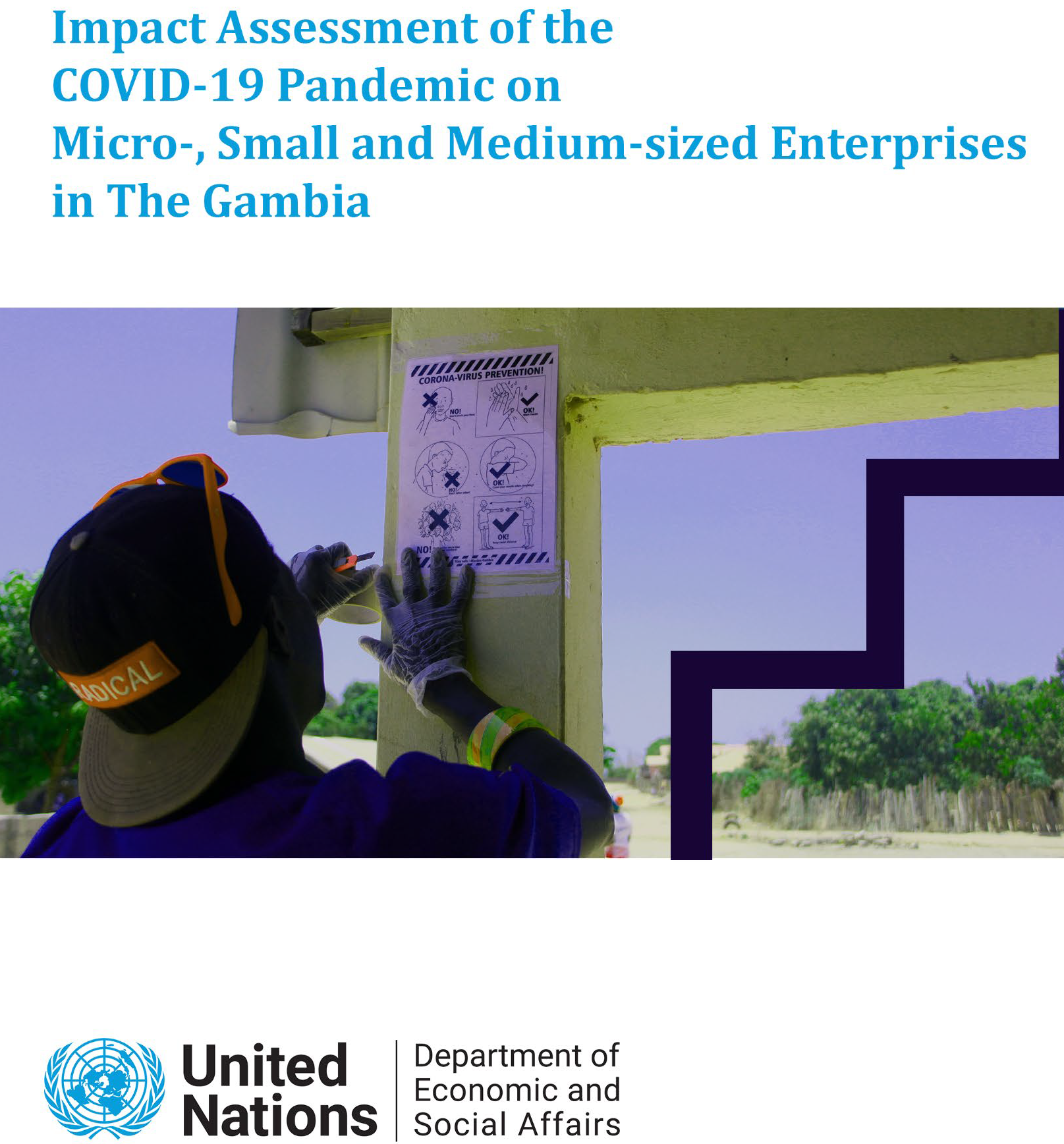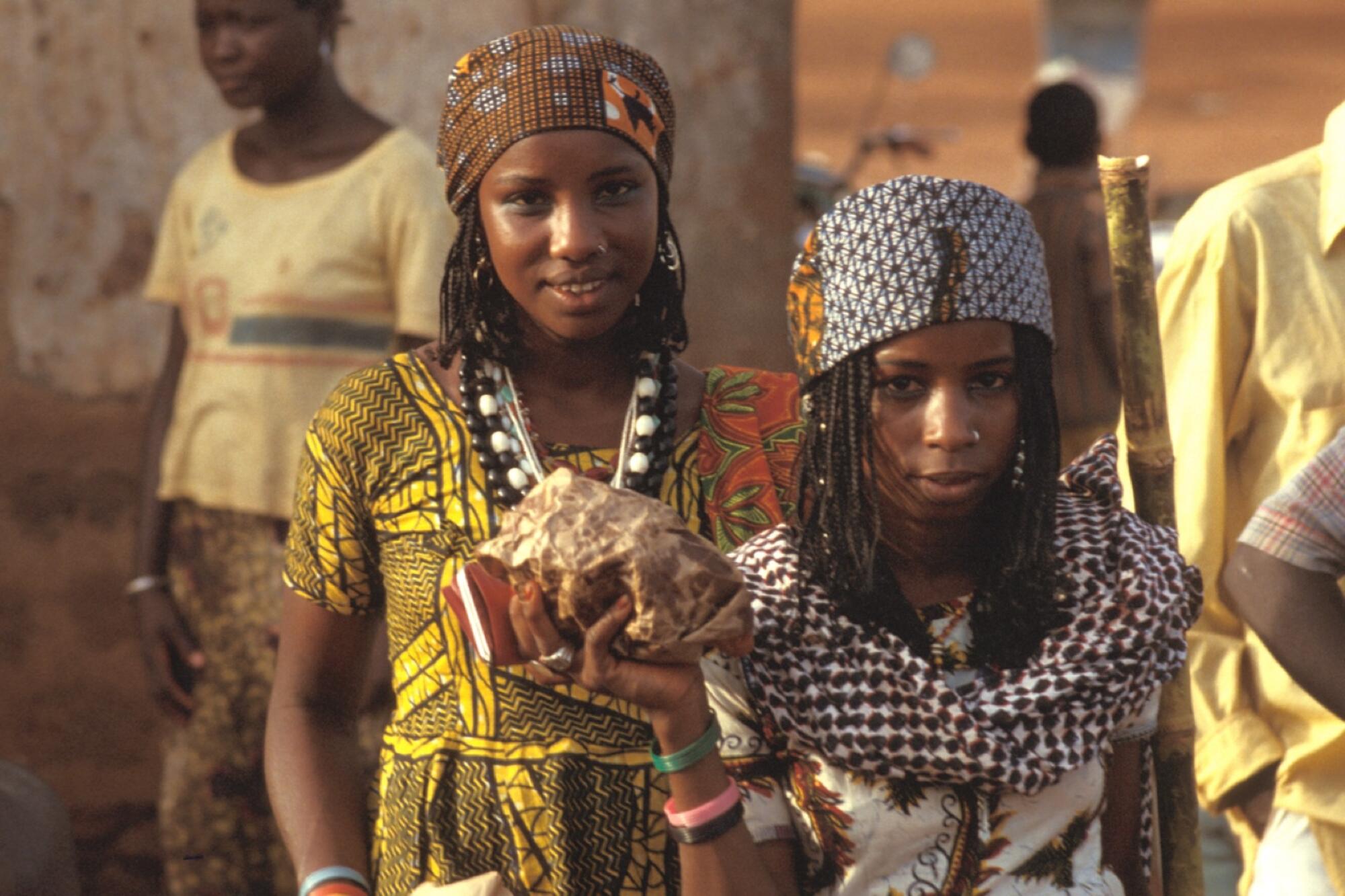Background
Artificial Intelligence, particularly generative AI (gen AI) applications with its deep learning functions, are transforming the world with profound implications. However, the benefits and risks associated with AI are not equitably distributed among countries, sectors, and population groups. Strengthening artificial intelligence related capacities among micro-, small and medium-sized enterprises (MSMEs) in developing countries can drive transformative change across SDGs. This includes helping MSMEs make data-driven decisions to engage financing and marketing opportunities, bridging digital divides that drive innovations and advance decent job creation. MSMEs with strengthened AI capacities have the potential to contribute to an open, fair and inclusive digital economy that benefits all.
Micro-, Small and Medium Enterprises are crucial engines for accelerating progress towards SDGs and their contributions can be further scaled up if their capacities are strengthened to harness generative Artificial Intelligence (gen AI) benefits. Strengthened capacities of MSMEs contribute to enhancing digital connectivity and creating jobs in developing countries. Enhanced efficiencies and data insights gained by MSMEs through gen AI can also feed into local government initiatives and improve public service delivery. In the Political Declaration of the SDG Summit 2023, MSMEs, as part of the private sector, are recognized as a critical stakeholder group for achieving the 2030 Agenda and its SDGs. Moreover, investing in MSMEs and expanding MSME access to the digital economy was identified as a strategic objective in the Global Digital Compact endorsed at the Summit of the Future. The project “Strengthening capacities of developing countries in harnessing generative Artificial Intelligence to support micro-, small and medium-sized enterprises for transformative changes across the SDGs” covers four target countries, namely, Indonesia, Rwanda, Nigeria and Zambia. The project aims to deliver demand-driven capacity building support, assist policymakers and MSMEs to harness generative AI, and promote the adoption of AI among MSMEs in these countries.
The project is funded by the 2030 Agenda Sub-Fund of the United Nations’ Peace and Development Fund (PDF). It will strengthen capacities of MSME entrepreneurs to harness the benefits of generative AI to improve efficiency and quality of products and services, drive MSME competitiveness and growth while managing AI related risks. Additionally, the project will enhance the knowledge and capacities of policymakers to design and implement effective policies that allow countries to seize the opportunities being created by AI, improve access and affordability of digital infrastructure and internet services, helping close digital divides; protect jobs and economies from disruptions potentially triggered by AI; support new business opportunities, inform re-skilling programmes for the broader workforce, and that also address data security concerns of MSMEs and their customers.
Reports
This section includes reports the programme has delivered, including global reports covering topics such as contributions of Micro-, Small and Medium-sized Enterprises (MSMEs) to the Sustainable Development Goals (SDGs), youth entrepreneurship and the analysis on roles of MSMEs for the SDGs elaborated in the 2020 Voluntary National Reviews (VNRs). The section also includes national reports and publications customized to specific issues related to MSME growth in pilot countries, including MSME formalization, MSME resilience to the COVID-19 pandemic and the mainstreaming of MSMEs in regional market integration.
Thematic reports
Micro-, Small and Medium-sized Enterprises (MSMEs) and their role in achieving the Sustainable Development Goals (SDGs)
Background: This report aims to demonstrate the relevance, roles and contributions of Micro-, Small and Medium-sized Enterprises (MSMEs) to the seventeen Sustainable Development Goals (SDGs). It examines the roles of MSMEs in each of the SDGs, as well as MSMEs in economic activities related to creating employment, incomes and livelihood opportunities, particularly for the poor and marginalized groups. Through detailed analysis, the report establishes linkages between MSMEs and their contributions to all seventeen goals.
Download link: https://sdgs.un.org/publications/micro-small-and-medium-sized-enterprises-msmes-and-their-role-achieving-sustainable
Exploring Youth Entrepreneurship
Background: This report explores aspects of youth entrepreneurship as a mechanism to achieve the Sustainable Development Goals. It sets out the position and challenges of youth in Cambodia, Lao PDR, the Philippines, the Gambia, and Fiji, and investigates the dynamics of youth entrepreneurship through an overview of key debates, including the importance of context and the role of the informal economy. The report presents good practices to promote youth entrepreneurship as a way to maintain global employment rates and provide sustained livelihood opportunities to vulnerable groups.
Download link: https://sdgs.un.org/publications/exploring-youth-entrepreneurship-24572
Improving MSME Formalization through the Cooperative Enterprise Model
MSME formalization requires a multifaceted and multi-stakeholder approach. To support formalization, government departments need to establish policies and create distinct regulatory bodies. Through creation of linkages – such as knowledge and excellence hubs - governments could enable already formalized entities to mentor informal MSMEs, supporting their preparations for the transition to formalization. The cooperative business model can be emulated within the context of MSME formalization. Cooperatives are people-centred businesses entities that are value- and principle- driven with focuses on local communities. As such, cooperatives can serve both as a stimulus and a catalyst for engagement in the formalization process, and as a means of eliminating the many existing barriers to the successful completion of the formalization process.
Download link: https://sdgs.un.org/publications/improving-msme-formalization-through-c…;
National reports
Supporting Micro-, Small and Medium-sized Enterprises (MSMEs) to Achieve the Sustainable Development Goals (SDGs) in Cambodia through Streamlining Business Registration Policies
Background: Micro-, Small and Medium-sized Enterprises (MSMEs) are the backbone of the Cambodian economy, comprising more than 90 percent of enterprises in the country. In 2018, MSMEs provided over 70 percent of employment opportunities and more than half of the annual Gross Domestic Product (GDP). The upgrading and modernizing of MSMEs has become a strategic priority in the Cambodian Industrial Development Plan (IDP) 2015-2025. This report includes policy guidance for simplified MSME formalization and a comparative study of MSME formalization policies in four countries, namely Singapore, Malaysia, Thailand and Myanmar. This report is a joint effort by the Division for Sustainable Development Goals in the Department of Economic and Social Affairs of the United Nations (DSDG/DESA) and the Ministry of Industry and Handicraft (MIH), the Royal Government of Cambodia.
Download link: https://sdgs.un.org/publications/supporting-micro-small-and-medium-sized-enterprises-msmes-achieve-sustainable
Impact Assessment of the Covid-19 pandemic on MSMEs in The Gambia

Background: A total of 500 MSME entrepreneurs were interviewed in the assessment, encompassing second-hand clothing dealers, poultry farmers, horticulture farmers and fish sellers. The assessment found that most entrepreneurs reported that the virus has led to a reduction in their earnings (62.0 %) and the proportion was highest for Horticulture Farmers (67.9%) followed by fish sellers (60.7%). The assessment also found that the pandemic has led to high indebtedness as reported by 11.6% of the respondents. To compensate loss of revenues, MSME entrepreneurs reported diverse mitigating measures, including starting other business, carrying out additional paid employment and borrowing from families and friends. Less than a quarter of interviewed entrepreneurs expressed their receipt of government support. Cash and food donations are identified as means they have to resort for the survival of their families.
Download link: https://sdgs.un.org/documents/impact-assessment-covid-19-pandemic-msmes…;
Spotlight
This section includes video remarks and media reports about the project.
Video Remarks
More videos can be found in our Youtube channel.
Media Reports
Resources
This section provides links to online resources on critical topics related to Micro-, Small and Medium-sized Enterprise (MSME) growth, including access to finance, formalization, resilience to the COVID-19 pandemic and MSME for green growth.
Access to Finance
Formalization
- ILO Recommendation: Transition from the Informal to Formal Economy Recommendations
- Legislative guidelines on key principles of a business registry, UNCITRAL
MSME Resilience to the COVID-19 pandemic
MSME for Green Growth
Documents
Reports
Events
Pagination
- Page 1
- Next page
events

Poverty eradication

Gender equality and women’s empowerment

Employment, decent work for all and social protection


